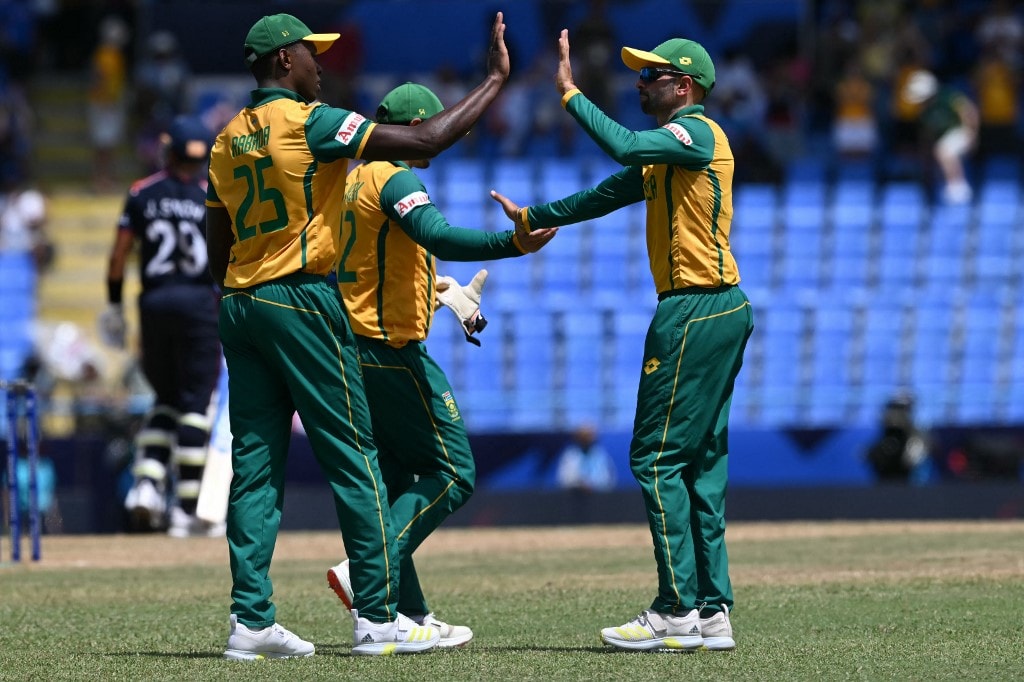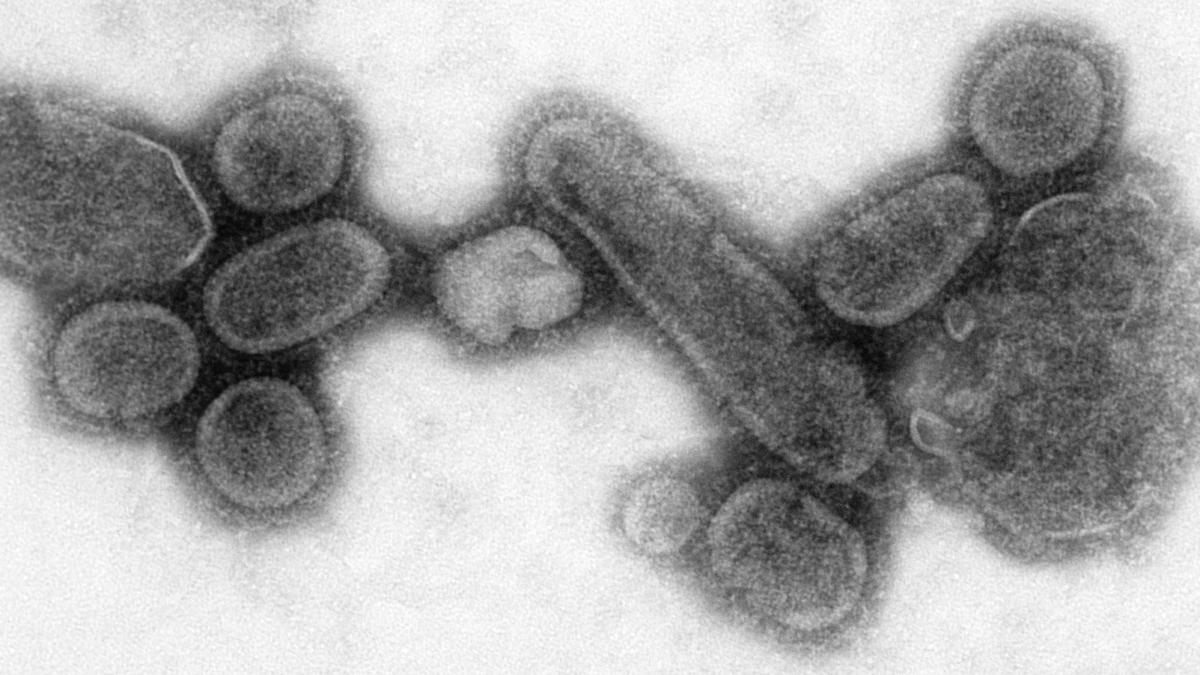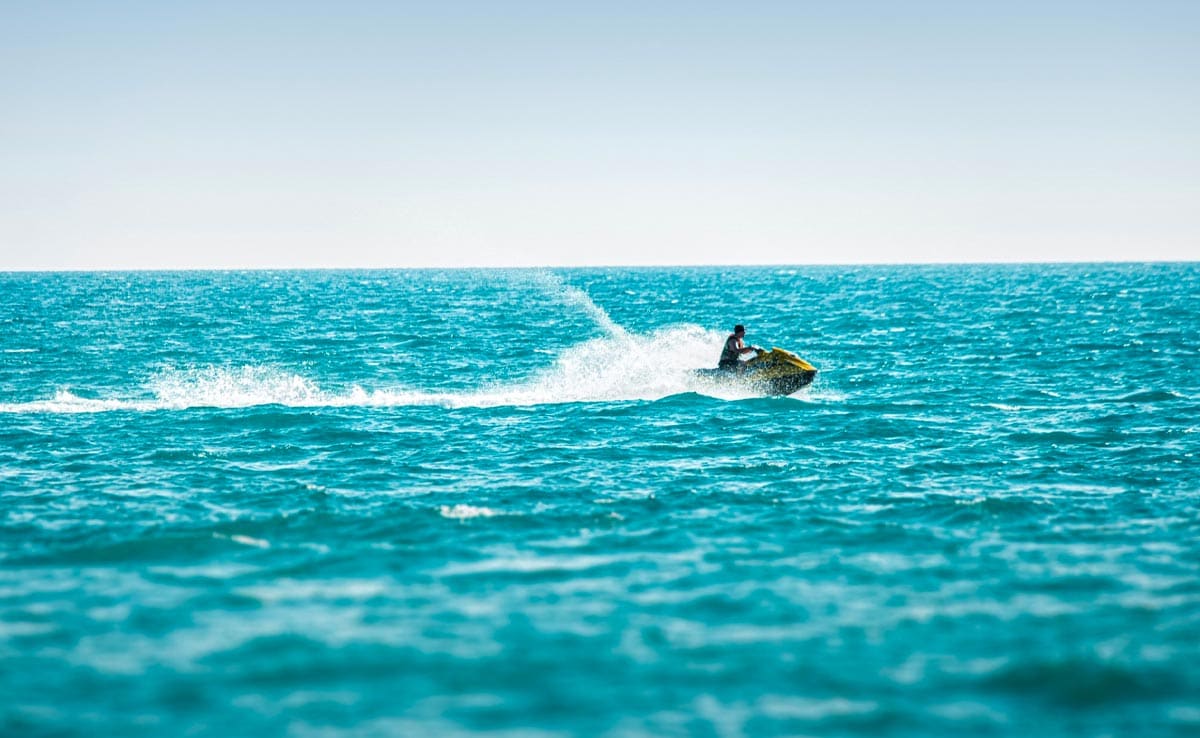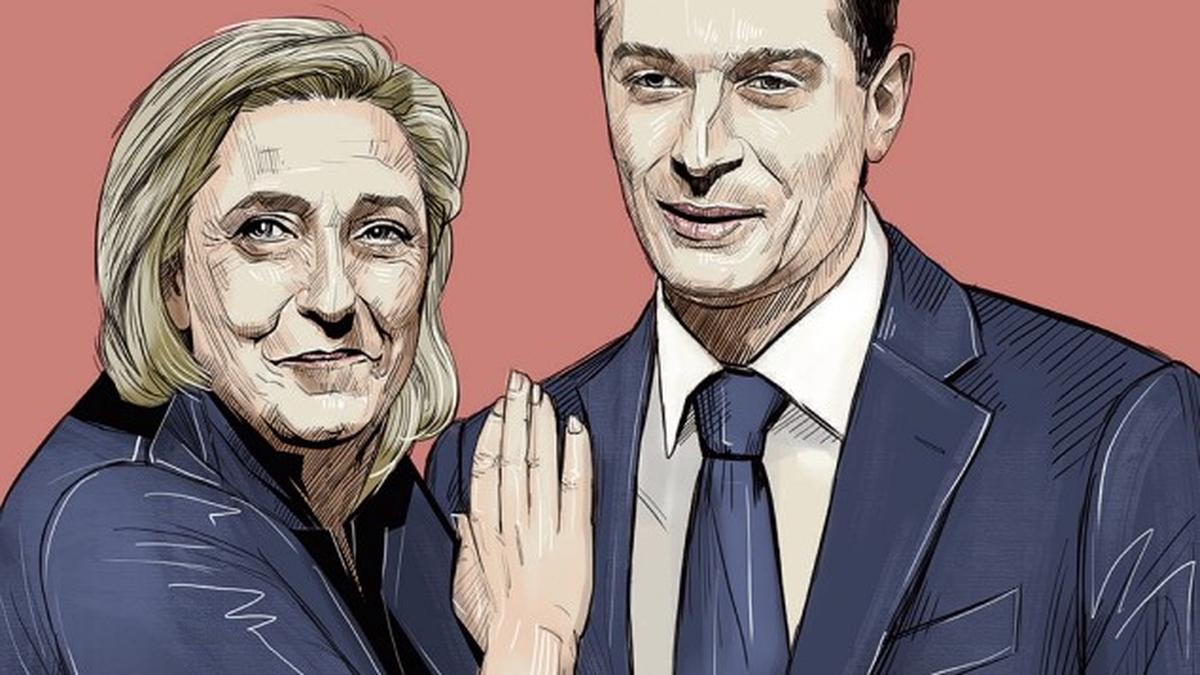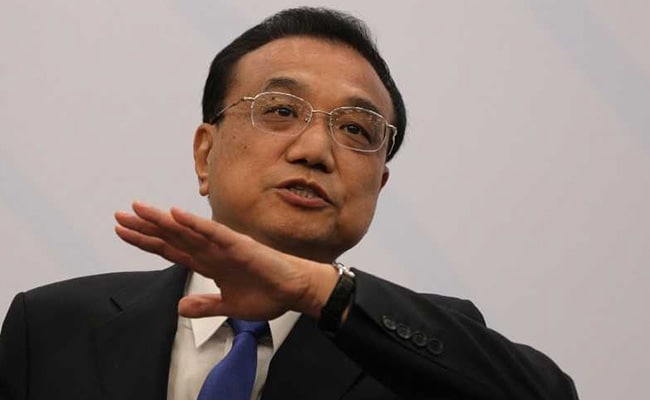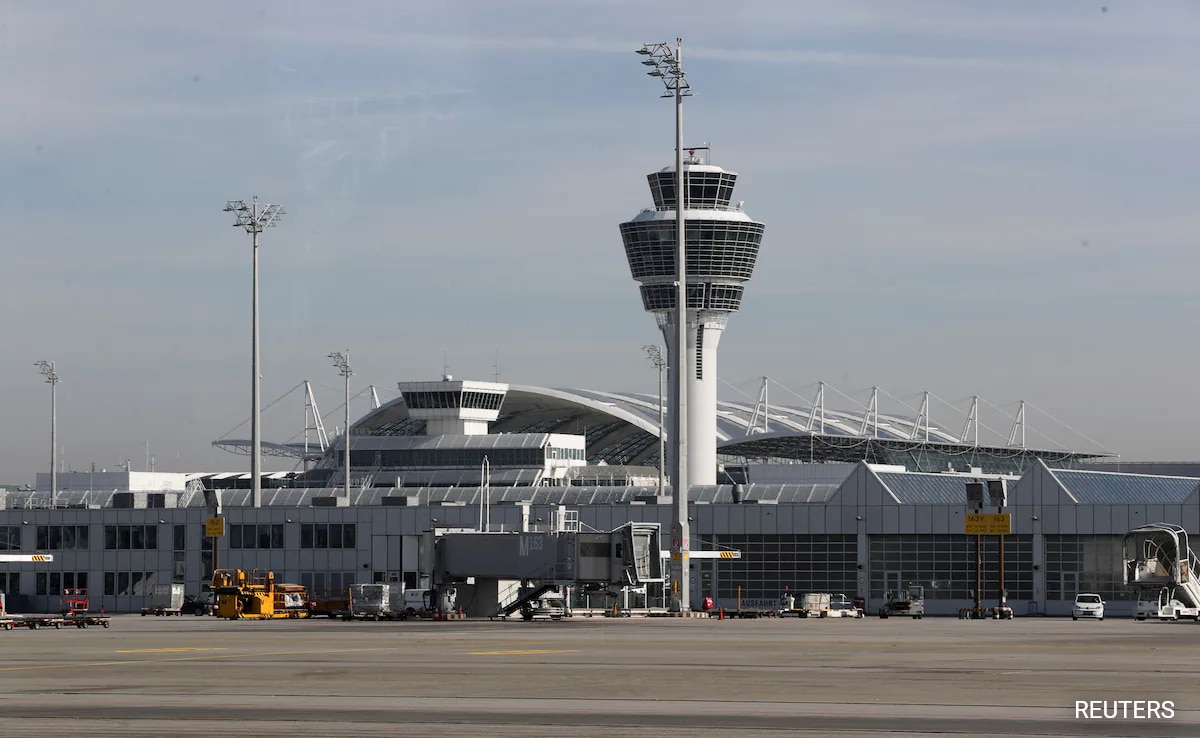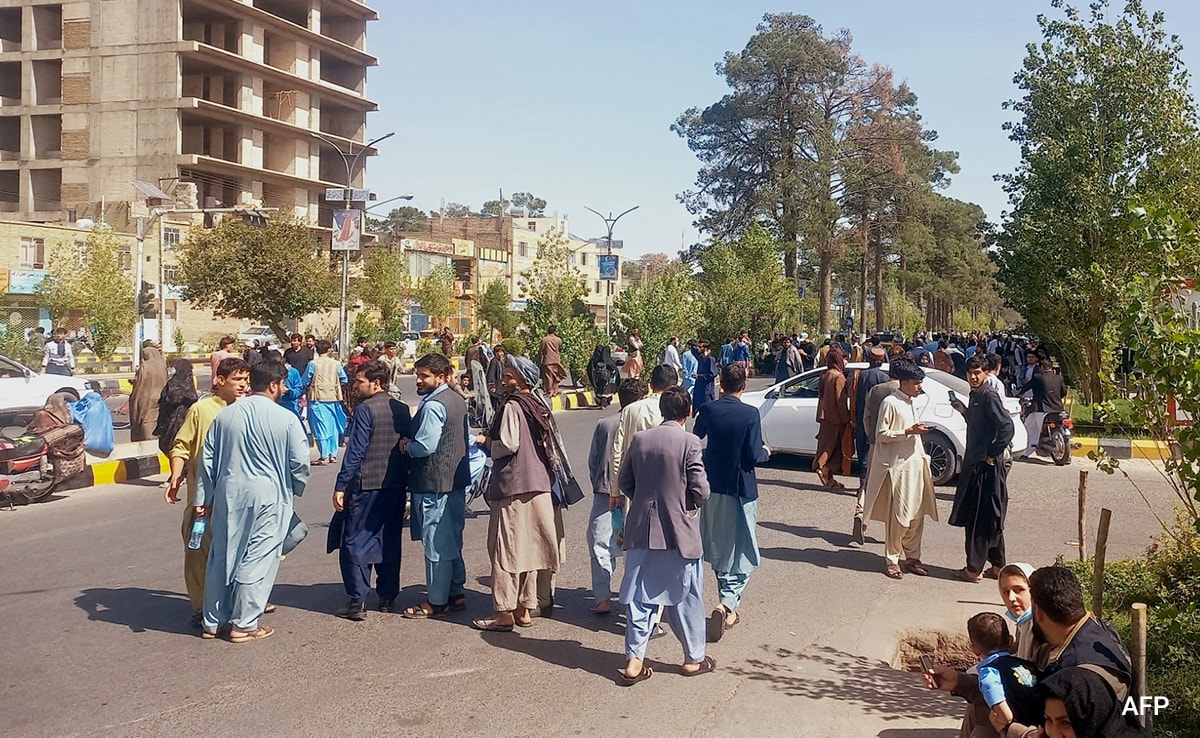In the elections to the European Parliament conducted from June 6 to 9 across the EU, France’s far-right party, the Rassemblement National (RN), or National Rally, became the biggest party nationally, winning 31.5% of the vote while President Emmanuel Macron’s coalition won just 14.6% of the vote share. Prompted by the results and in an attempt to dislodge far-right forces, Mr. Macron called for snap elections, which are to be held on June 30 and July 7. However, experts say this political gamble might fail as the RN’s parliamentary party leader and president, Marine Le Pen and Jordan Bardella, respectively, have gained much ground with the former being dubbed as one of the most popular politicians in the country.
For a country which once had ‘Anything but Le Pen’ as its mantra, the rise of the RN has come after years of strategic manoeuvring. During this phase, the RN, under Ms. Le Pen’s leadership, has distanced itself from its fascist roots, making it more acceptable for French voters and elites.
‘Devil of the Republic’
The roots of the RN go back to the 1960s, a tumultuous period in French history. The Algerian war, which led to the independence of the North African country from France; the formation of the Fifth Republic (France’s current system of governance); and the May 1968 protests by university students and trade unions, brought otherwise scattered neo-Nazi and far-right groups together, under a unified banner called the Ordre Nouveau (ON), or New Order, in 1969. A neo-fascist organisation, it propounded ‘a defence of the West’ by banning political parties and establishing a fascist state. It was also anti-immigrant and called for preserving the ‘white race’.
However, fearing being left on the fringes of political discourse, the ON wished to enter the electoral domain. It wanted a leader to become the movement’s face. They chose Jean Marie Le Pen. A veteran of the Algerian war, the 44-year-old was considered the ideal candidate to lead the ON’s electoral party, the Front National (FN), or the National Front, in 1972.
The gist
The National Rally’s roots go back to the Ordre Nouveau, the neo-fascist party, formed in 1969, which called for banning political parties and preserving the ‘white race’
The ON formed an electoral party, the Front National (FN), which fought the 1973 elections under the leadership of Jean Marie Le Pen, a far-right veteran of the Algerian war
Marine Le Pen, Jean Marie Le Pen’s daughter, later took over the reins of the party and brought it to the mainstream by dissociating herself from her father and rebranding FN as the National Rally
However, the stint between the ON and the FN was short-lived as Mr. Le Pen quickly took over the reins of the party. In the 1973 elections, the FN campaigned on the basis of conservative values such as ‘depoliticising’ education, defending small businesses, asking mothers to stay home, etc., with the ON’s radical leanings nowhere to be found.
Irrespective of the break from the ON, Mr. Le Pen, while leading the FN since its formation till 2011, did not gain widespread electoral approval. He ran for presidential elections five times, even qualifying for the second round in 2002, a major victory. At the same time, he has courted much controversy over his anti-Semitic remarks and attempts at holocaust denial. Mainstream media and parties considered him a threat to the very idea of French democracy, dubbing him as a ‘Devil of the Republic’.
A thorough detox
How then did the FN (now RN) rise in popularity in France? There is usually just one answer — Marine Le Pen. In 2011, Mr. Le Pen was succeeded by his daughter as president of the FN. Compared to her father, Ms. Le Pen was seen as more moderate. She strove to distance herself and the party from his controversial statements. These efforts eventually led to Mr. Le Pen’s expulsion from the party in 2015. To completely cut ties with her father, she renamed the party from the National Front (FN) to the Rassemblement National (RN) in 2018.
However, such a rebranding was not smooth. Ms. Le Pen had to roll back some of her own contested opinions. For example, in 2017, she said the Euro was an ‘economic failure’, and that the EU had become too globalist, constraining France’s growth. She advocated for ‘Frexit’, on the same lines as that of the U.K’s Brexit. She has now, however, softened the party’s position and officially dubbed it as being EU-sceptic.
The RN’s main policies are based around immigration and ‘national priority’. The party is completely opposed to immigration. It calls for the deportation of all ‘illegal’ immigrants, strict border controls, the abolishment of birthright citizenship, etc. The burgeoning immigrant population and the record number of refugees and asylum seekers requesting entry into France have made the once ‘extreme’ policies more inviting now.
Moreover, conspiracy theories such as the ‘invasion by terrorists’ of France and instances of violence where a school teacher was killed by extremists in 2020 for showing caricatures of the Prophet Mohammed, and more recently the killing of a 17-year-old boy of Algerian and Moroccan descent by a police officer, have created concerns about safety and a possible cultural clash in the country. The RN’s spokespersons have always played up the idea that certain immigrants (read Muslims) are not properly ‘integrating’ into French culture and are not adhering to the French principle of ‘laïcité’ (separation of religion and state). Furthermore, the party advocates for a ‘French first’ attitude, wherein the RN promises French citizens priority when it comes to employment, housing and social benefits.
The RN has thus grown as a populist right-wing movement as can be seen in Ms. Le Pen’s jump in vote share during her presidential runs — from 34% in 2017 to 41% in 2022. A survey published in December 2023 by Franceinfo and Le Monde showed that 45% of those interviewed believed the RN “does not represent a danger for democracy in France”, while 41% believed the opposite to be true. Ms. Le Pen has also appealed to a much wider audience by defending women’s rights (in opposition to Islam’s patriarchal practices) and advocating for environmentalism.
The Bardella effect
The RN balances its protectionist economic policies with populist ones such as increasing public spending. It was severely critical of Mr. Macron’s move to increase the age of retirement, and has promised to roll it back with time. Additionally, the RN has promised to cut down VAT on energy, fuel and a number of other essential products. It has retained its hold over southern France, comprising rural towns, and has made inroads in the northern industrial province as well.
However, the appointment of Jordan Bardella, the savvy 28-year-old protege of Ms. Le Pen and possible prime ministerial candidate of the RN, has brought in even white-collar workers to the fold. He is also appealing to the youth who after the COVID-19 pandemic, the energy crisis due to the Russia-Ukraine war and the ongoing cost-of-living crisis have increasingly shifted to the right as a reaction against establishment politics.
With Mr. Bardella’s prowess and Ms. Le Pen’s planning, the RN is set to win the first round of the French election with a 35% vote share, a recent poll predicts. However, while the RN’s policies are popular, it does not make them devoid of their characteristic ‘extremeness’. The policy of ‘French first’ is against the Constitution. Ms. Le Pen had said she would call for a referendum so as to change the Constitution. Similarly, the RN’s proposal to cut down VAT and bring down the age of retirement could increase France’s large debt burden, currently estimated at over 5% of the GDP. It remains to be seen whether the RN’s populist policies and leadership would come at the cost of the Fifth republic.

